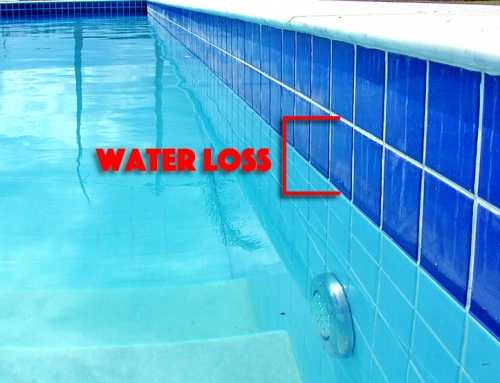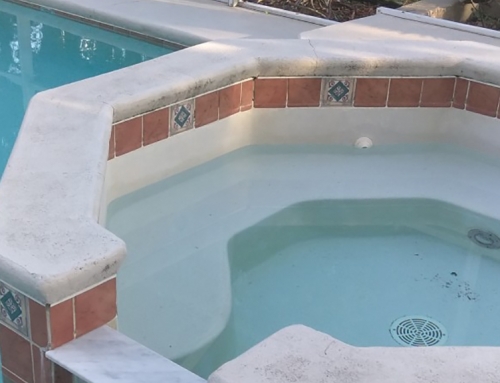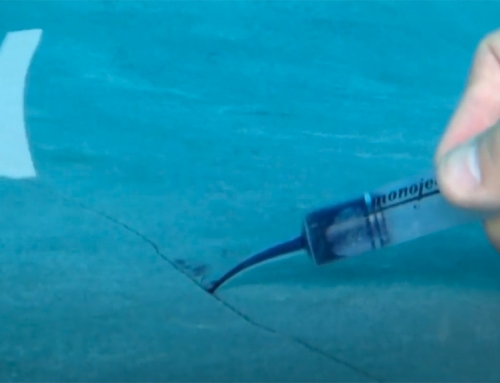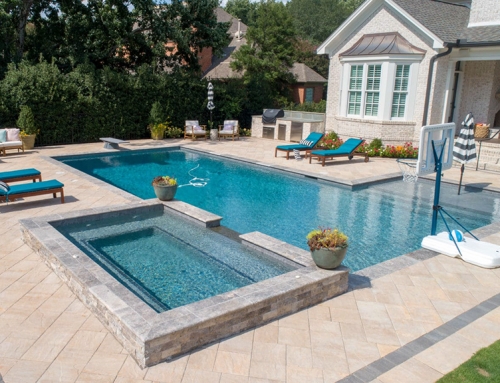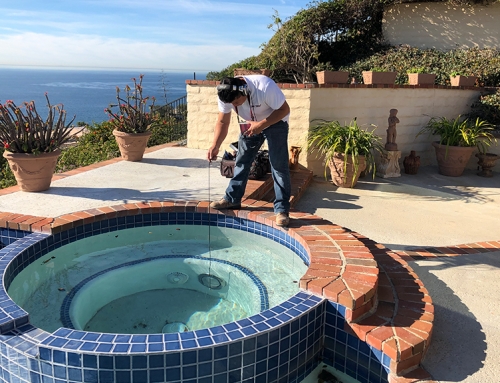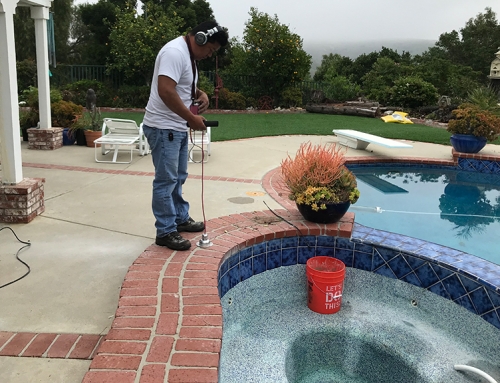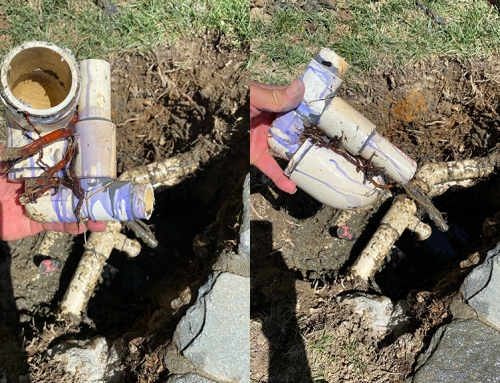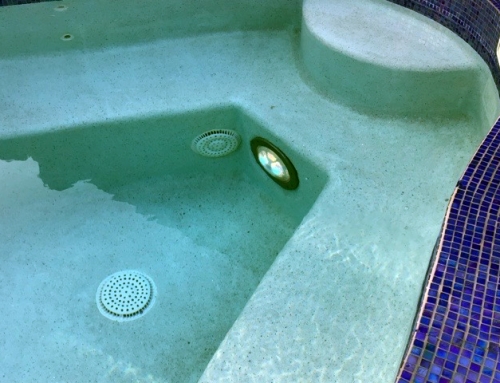If you’ve come to a place where you’re noticing your pool is losing water, it’s almost certain that you’ll want a leak detection performed. Pools can lose water minimally without immediate notice, but if you can see it, it’s a virtual guarantee that a leak is happening. Vinyl liners can have small pinholes that increase in size over time, and concrete pools may have small areas around fittings and plastic protrusions. Ignoring them is the best way to see them become bigger problems, as cracks can spread and widen and small leaks around fittings can easily become bigger leaks. It’s much the same with pool plumbing. The best results will come from a proper leak detection to accurately identify where leaks occur, and to get them repaired fast.
Some homeowners ask us questions because they want to stay in the know. Understanding that until a proper leak detection is performed, it’s all speculation. Still, there are some questions we can address immediately to help raise awareness.
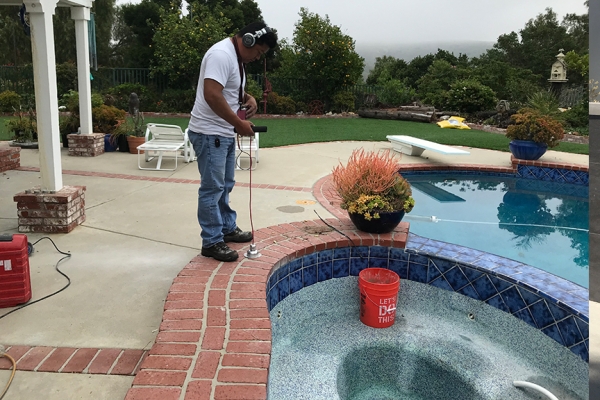
How often should I be adding water to my swimming pool?
There are a number of reasons water loss can occur in a pool.
- Splash-out
- Backwash waste
- Evaporation
These are just a few reasons for noticing your pool is losing water. Depending on the area where your pool is located, some of that water loss can be regained with rainfall, but there is a limit to take note of. You shouldn’t have to keep adding water regularly to your pool to maintain water levels. Even with regular use, if you are seeing 2 inches of water loss in your pool weekly, or more, it’s best to call a professional leak detection company.
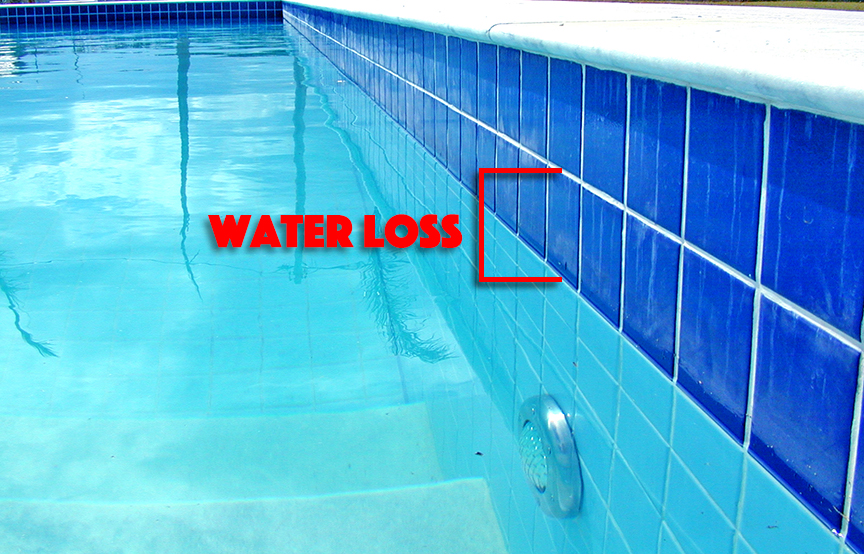
What causes this water loss?
Again, without a proper leak detection, the list of reasons for losing water is long. However, knowing that pools are designed and built to be water tight, common areas inside the pool shell where plastic protrudes through the shell itself can be a cause of leaks. This means return fittings, drains, side suctions or skimmers can have minor surface separations that lead to water loss. If your pool is vinyl lined, small holes become tears and rips and even seam separations can be a cause of water loss. Pool water, however, circulates through a series of pipes and plumbing, as well as through equipment. Underground pipes aren’t visible when they leak and water could be seeping from a crack or pipe separation. Other equipment like pumps, valves, heaters and autofill systems can also be a cause of water levels dropping. There is no simple answer to the question other than to have a proper leak detection performed to address all areas where water can escape from the pool environment.
Is there anything I can check before calling a service professional?
Some things you can try to raise awareness include looking to see if you are losing water with equipment running, or with equipment off. If water is only lost during equipment up-time, this is something to note and alert your technician to. If your pool is standing still and water loss happens, this can also help address the issue; but note that a professional leak detection technician will take all this information into consideration but will still perform a complete leak detection to find out where the factual issues are.
What if my water leaks down to a certain level and stops?
This can be an indication that the water leak is in the area where the level stopped dropping, but it’s not a guarantee. There may be a cold joint break behind the tile line, and water might stop draining at the level of the break. Conduit behind a light maybe the cause of a leak, but may also be at the level of a tile line – so speculation can lead to misunderstanding. It’s been said that knowing is half the battle, but you don’t want to be guilty of knowing what you don’t know. Assuming a leak is in one spot and making repairs can mean you missed where the real offending leak is. A proper leak detection will address all leaks in a pool, with precision and accuracy.
When CalTech comes to your pool to perform a leak detection, there are criteria that make for the best results.
- Have the pool filled to the proper operating level.
- Make sure the water is clear, so the leak detection technician can see the entire surface of the pool shell.
- When performing the leak detection, the technician will start with all equipment off.
CalTech Pools uses LeakTronics professional leak detection equipment. This includes highly sensitive and powerful hydrophones, microphones that are made to listen from inside water. With the pool filled, the weight of the water will cause a noise that is heard using the hydrophones. This technology allows the technician to accurately locate the precise area of a leak, either in the pool shell, or in the lines that run between the pool and the pool equipment. Using specialized methods and the equipment in LeakTronics Pro Complete Leak Detection Kit, your technician will hear where water escapes, and use non-invasive methods to back-up the discovery of leaks to be sure that all leaks are heard and identified.
A pool is a big expense that many homeowners are proud to have on their property. Maintaining that pool can cause stress, but there’s an easy way to reduce concerns. As soon as you notice water loss, call CalTech for a leak detection. We’ll arrive on site and check every aspect of your pool and the pool environment to guarantee your investment give you the leak free comfort a swimming pool provides.
Call 818-436-2953 today to schedule a leak detection on your pool and to find out if repairs are necessary, and how you can have them performed.

